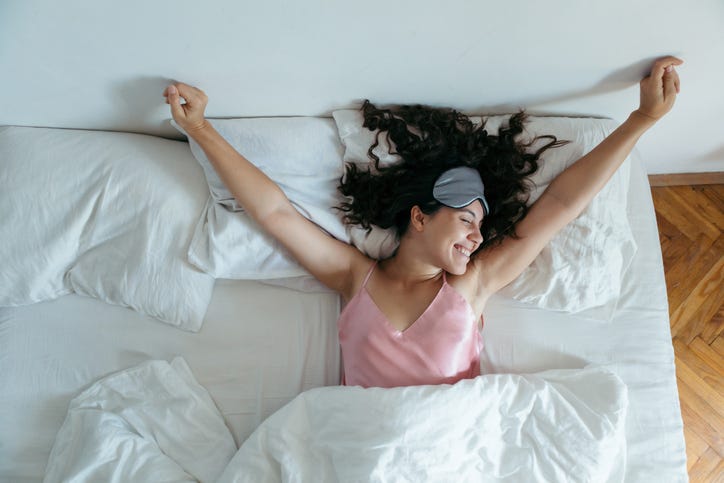
Some of us like it hot while others would prefer to sleep in a cold, air conditioned room all year round. So, what is the perfect temperature to get the best night's sleep?
A group of Harvard researchers say they have determined the ideal bedroom temperature for the most efficient and restful sleep.
According to a new study published in the journal Science of the Total Environment, sleep is most efficient and restful when nighttime ambient temperatures range from 68 to 77 degrees Fahrenheit.
Sleep quality also dropped as the temperature increased beyond 75. The data showed a 5% to 10% drop in sleep efficiency as ambient temperature increased from 77 to 86 degrees.
The study also revealed a "substantial" difference in preference between people -- meaning that each person has their own optimal temperature range for sleep.
Researchers say night-time ambient temperature plays a "pivotal" role in sleep quality for older people, which the study focused on.
"Older adults often experience inadequate, restless, and disrupted sleep which in turn influences many outcomes related to their health and wellbeing such as cognitive and physical function, mood and affect, irritability and reaction to stress, productivity, diabetes management, and risk of cardiovascular diseases," the study noted.
For the study, researchers monitored sleep duration, efficiency, and restlessness of 50 community-dwelling older adults over an extended time period. The study collected nearly 11,000 person-nights of sleep and environmental data.
"These results highlight the potential to enhance sleep quality in older adults by optimizing home thermal environments and emphasizing the importance of personalized temperature adjustments based on individual needs and circumstances," lead researcher Amir Baniassadi said in a statement.
Room temperature has such an effect on sleep quality that the research team plans to continue this line of work by focusing on the potential impact of climate change on sleep in low-income older adults and developing interventions to optimize their environment.
In addition to room temperature, other tips for getting a good night's rest include avoiding late-night eating and drinking, avoiding alcohol and not drinking caffeine late in the day. Researchers also suggest wearing lighter sleep clothes to help regulate your body temperature, and participating in relaxing activities before bedtime, like reading or listening to calming music, to prepare your body for sleep.
Researchers acknowledge that our bodies are hardwired for easier and more restful sleep in cooler environments. So, with that in mind, researchers say you can find your optimal sleep temperature by starting with a room temperature between 68 and 74 degrees and then experiment with cooler temperatures to see how it affects your sleep.


